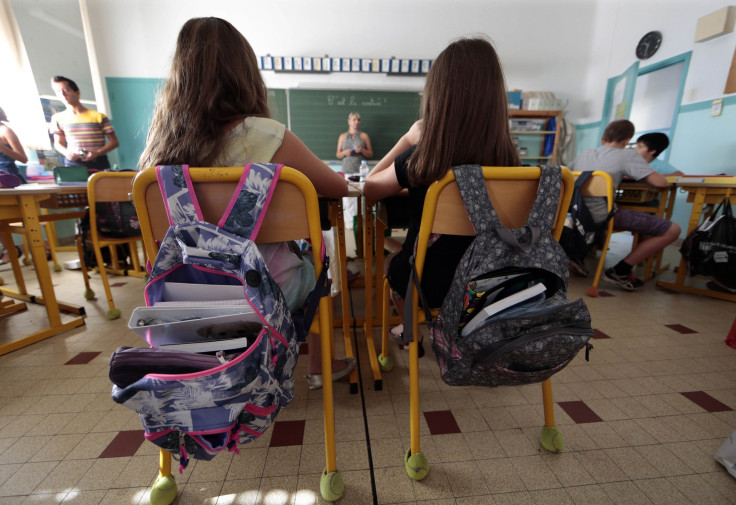Starting School Young Is 'Too Much, Too Soon': Should Kids Start School Before Age 6?

One-hundred-and-twenty-seven senior figures in the England education system — including Sir Al Aynsley-Green, the former Children’s Commissioner for England, and Dr. David Whitebread, senior lecturer in psychology of education at Cambridge University — have called on their government to delay formal schooling for children until the age of 6 or 7 years old. The call to action, as outlined in a letter to the Daily Telegraph, is now being circulated by the Save Childhood Movement to coincide with the launch of their "Too Much, Too Soon" campaign.
“Research does not support an early start to testing and quasi-formal teaching, but provides considerable evidence to challenge it,” the movement states on its website. “Early childhood should be treated as a vital developmental stage in its own right — not merely as a preparation for school, but uniquely as a preparation for life.”
The issue of ‘school readiness’ has already stirred debate, the lines drawn neatly in the sand. By law in England, a child must begin school by age 5, though the majority of children begin what is referred to there as ‘reception classes’ at age 4. A spokesman for Michael Gove, the country’s Education Secretary, suggested that the signatories advocated dumbing down policies and were a ‘badly misguided lobby’ responsible for a ‘culture of low expectations in state schools.’
“We need a system that aims to prepare pupils to solve hard problems in calculus or be a poet or engineer — a system freed from the grip of those who bleat bogus pop-psychology about 'self image,’ which is an excuse for not teaching poor children how to add up,” the spokesman told the Daily Telegraph.
The Proof Is In The Pudding
As part of early childhood education, ‘school readiness’ programs address language development, cognitive skills, general knowledge, approaches to learning, and social and emotional skills in children ages 33 months to 6 years old. Generally speaking, school readiness programs are intended to prepare a child for school and lay the foundation for continued success within the educational system. Many developed countries may mandate children begin school at age 6 — this would include the United States — yet many children may be involved in school readiness programs, in the form of pre-school or informally structured day care ‘classes.’
The Save Childhood Movement also notes that children’s developmental rights are currently being ignored and goes so far as to invoke the Convention on the Rights of the Child (CRC), the legally binding international resolution adopted by the UN General Assembly in 1989. The CRC “encompasses social and economic rights such as food, water, housing, health care, education, and a pollution-free environment as well as the more controversial civil and political rights,” wrote Catherine Rutgers in the introduction to Creating a World Fit for Children: Understanding the UN Convention on the Rights of the Child.
Children’s rights may very well be essential to arguments proposed by Save Childhood Movement, as quite a bit of evidence found in educational literature suggests the opposite of their beliefs. Generally, research finds children who have acquired more educational skills at an earlier age are better off later. For instance, in a recent study conducted in Canada (where the school-starting age is 6), researchers found “the skills children bring to the kindergarten classroom might reduce a host of lifestyle risks from childhood through adulthood.” They found that children with high kindergarten vocabulary scores showed a decrease in sweet snack intake at the end of fourth grade, while higher kindergarten math skills predicted increases in activities requiring physical effort. It is important to note, though, that the participants in this study who displayed superior vocabulary and math skills may have acquired them outside a formal education program — say, from their parents.
Whether research ultimately supports the movement’s beliefs or not, the Save Childhood Movement does present one difficult-to-refute argument. About nine in 10 of the world’s nations mandate a school-starting age at 6 or 7 years old; in particular, they cite Finland’s mandatory school-starting age of 7. Pearson Education, which offers curriculum materials, multimedia learning tools, and testing programs globally, rated Finland and South Korea as having the best education systems among 40 developed countries, followed by Hong Kong, Japan, and Singapore. All four of these school systems, following Finland's, have a school-starting age of 6 years old.
Source: Pagani LS, Fitzpatrick C. Children’s School Readiness: Implications for Eliminating Future Disparities in Health and Education. Health Education & Behavior. 2013.



























